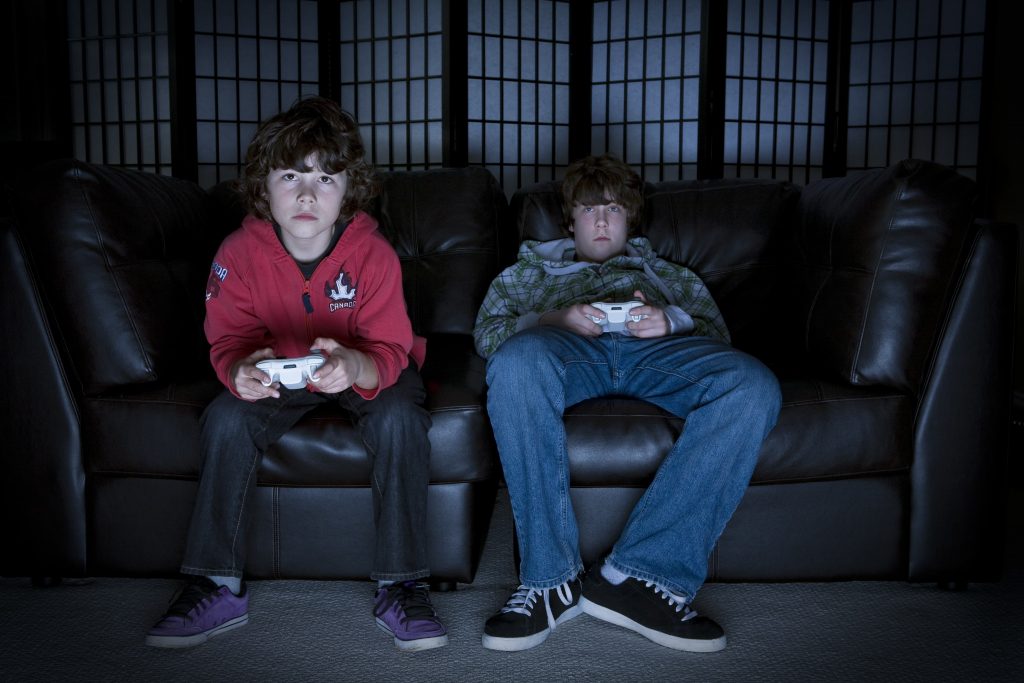 “He’s spending way too much time gaming,” You’ve probably thought to yourself as a parent of a teenage boy who likes to play games.
But how much gaming is too much and what can you do to stop your teen from spending hours playing games? That’s what this article will help you discover: how you can help your teen.
“He’s spending way too much time gaming,” You’ve probably thought to yourself as a parent of a teenage boy who likes to play games.
But how much gaming is too much and what can you do to stop your teen from spending hours playing games? That’s what this article will help you discover: how you can help your teen.
Teens and Gaming
According to a study done by Mott Poll, an organization that studies various trends, 41% of parents with teen boys report that their teen son plays video games every day. This is in contrast to 20% of girls who play video games every day. They also report that 37% of teen boys spend more than 3 hours per day playing video games. Girls averaged at 19%. What this means then is more than half of teens are spending time every day playing video games. In order to help your teen, you need to know just why the excessive playing of video games is harmful to your teen.The Harms of Gaming
Constantly playing video games is harmful to your teen because it is a form of using screens throughout the day. Screen-usage is correlated with higher rates of obesity. This is because, with screens, there’s very little physical activity and movement. In addition to the physical effects of gaming, gaming can result in addiction. Teens who feel like they need to be gaming every day tend to report emotions and reactions that are associated with addiction such as wanting to engage in an activity even if it impedes daily activities and duties.When Gaming Becomes An Addiction
Here’s a list of things to look out for when monitoring your teen’s gaming habits.- Sleeping or feeling tired throughout the day because gaming has impeded their normal sleeping patterns. This can look like your teen being very tired in the morning.
- Having little motivation for anything besides gaming. Your teen has little room and tolerance for any activity that could come in between them and their game.
- Lack of insight into their excessive desire to game. Your teen might see your measures to limit gaming as a threat toward them when in reality you’re trying to help them.
How You Can Help Your Teen
There are many ways that you can help your teen with their gaming habits. Here are some tips.Tip #1: Help Your Teen Set a Routine
One thing is certain: routines and structure help create rhythm and stability, both of which teens and young children love but might not explicitly state out loud. Instead of having your teen come home from school and then start gaming, help your teen by setting a routine for them where their interests are honored, but not the center of their lives. For example, have time blocked out for things like homework, physical activity, and family time. Your teen might first be resistant to or outright reject this new routine, but they will slowly get used to it if it’s put into practice every day.Tip #2: Exchange Gaming With Other Activities
If you want your teen to cut back on gaming, you will need to replace gaming with other activities. Leaving your teen with free-time that’s not filled with activities will have them falling back into old patterns. Here are some things that you can do to replace gaming:- Encourage them to engage in extracurricular activities or groups. This will help them create and maintain relationships with others, while also getting them active.
- Encourage physical activity. This can look like cycling in the summer and learning winter activities like sledding and skiing.
- Encourage pursuing other interests or finding new interests. For example, have them talk to you about what gaming offers them that other activities could offer them as well.


Leave a Reply